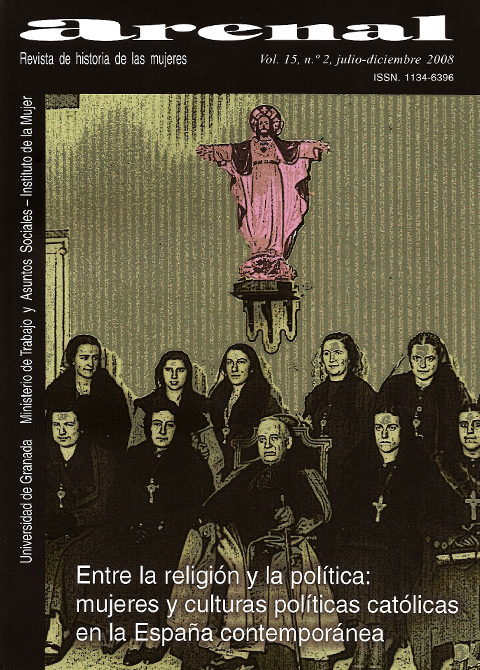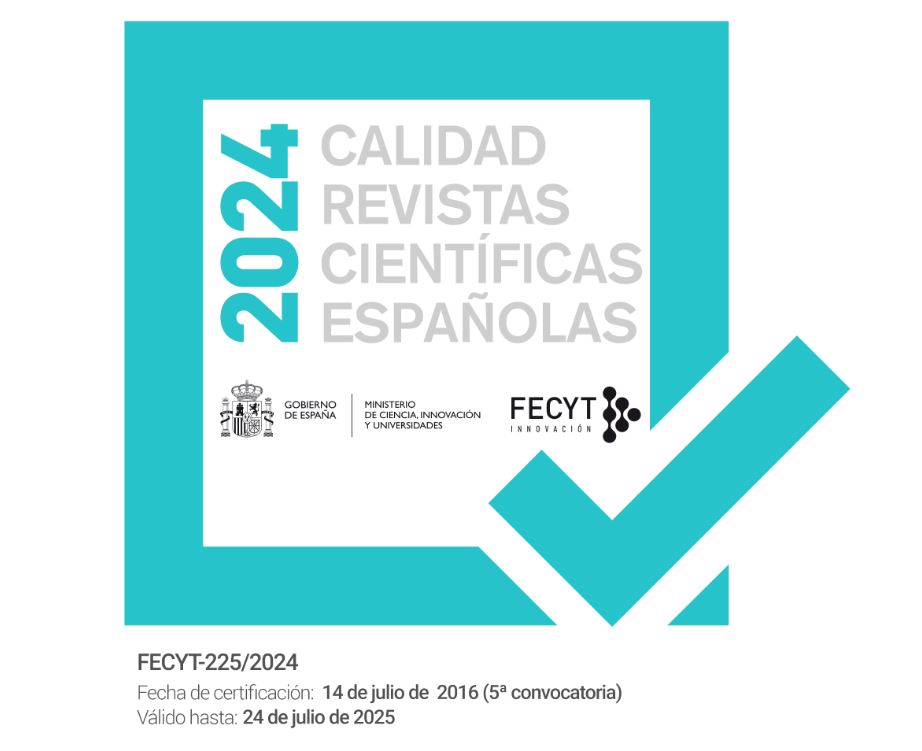Mujeres y “cuestión social” en el catolicismo social español: los significados de la “obrera”
DOI:
https://doi.org/10.30827/arenal.v15i2.3032Palabras clave:
Cuestión social, Catolicismo, España, Obrera, Familia, Maternidad, Diferencia sexual, María de EcharriResumen
Un rasgo distintivo de la cultura política católica finisecular fue el movimiento católico, que, relanzado en la última década del siglo XIX, se interesó, entre otros asuntos, por la candente “cuestión social”, para cuya solución en católico la Rerum Novarum ofrecía principios y orientaciones. Este artículo examina cómo, desde comienzos del siglo pasado, comenzó a despuntar el problema de “la mujer que vive de su trabajo” como uno de los más acuciantes dentro de la problemática más general acerca de la cuestión social. Los publicistas católicos sociales crearon en sus escritos los rasgos específicos de la “obrera”, y recrearon, desde una perspectiva hiperrealista, las condiciones de vida de la misma. El objetivo era conmover, despertar la compasión de unas damas caritativas a las que se llamaba a intervenir para solucionar una realidad social de nuevos contornos, la cuestión social femenina, desde los también renovados planteamientos de la acción social católica.Descargas
Descargas
Publicado
Cómo citar
Número
Sección
Licencia
Los/as autores/as que publican en esta revista están de acuerdo con los siguientes términos:
Los autores/as conservarán sus derechos de autor y garantizarán a la revista el derecho de primera publicación de su obra, el cuál estará simultáneamente sujeto a la Licencia de reconocimiento de Creative Commons 4.0 BY-NC-ND que permite a terceros compartir la obra siempre que se indique su autor y su primera publicación esta revista.
Los autores/as podrán adoptar otros acuerdos de licencia no exclusiva de distribución de la versión de la obra publicada (p. ej.: depositarla en un archivo telemático institucional o publicarla en un volumen monográfico) siempre que se indique la publicación inicial en esta revista.
Se permite y recomienda a los autores/as difundir su obra a través de Internet (p. ej.: en archivos telemáticos institucionales o en su página web) antes y durante el proceso de envío, lo cual puede producir intercambios interesantes y aumentar las citas de la obra publicada. (Véase El efecto del acceso abierto).














